Janomot
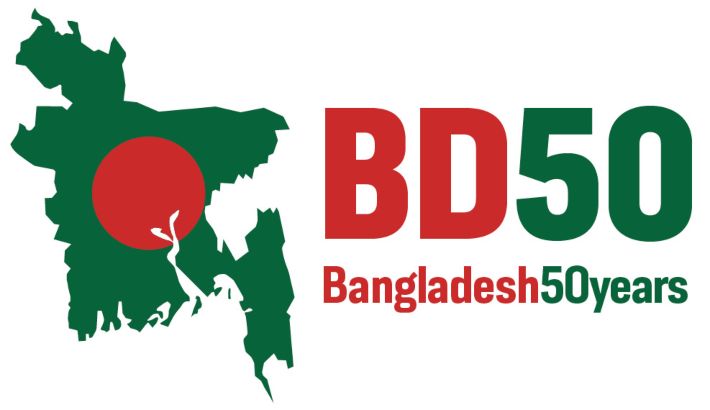
1 of 18
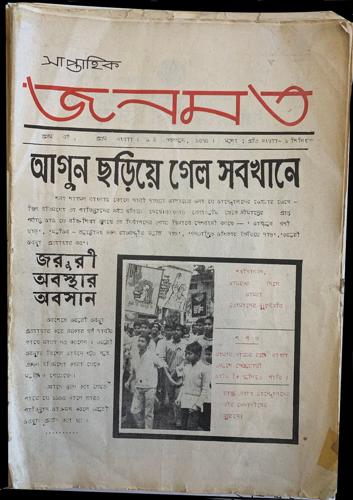
2 of 18
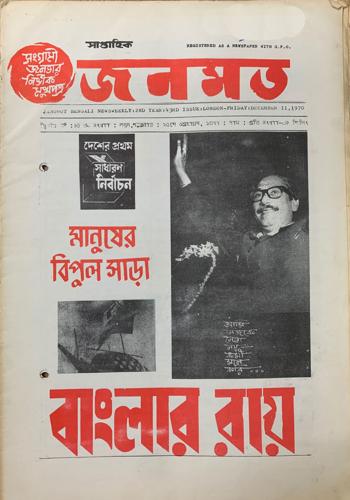
3 of 18
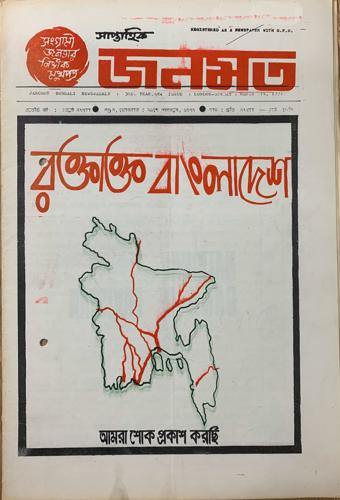
4 of 18
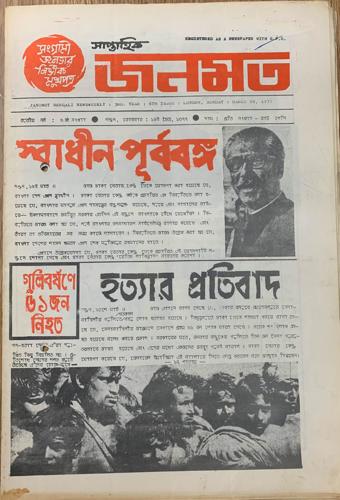
5 of 18
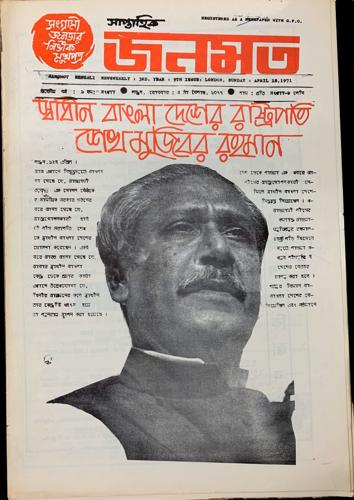
6 of 18
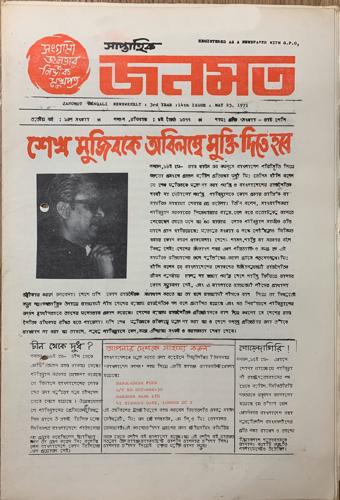
7 of 18
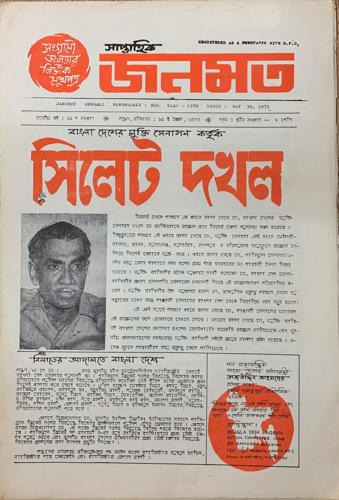
8 of 18
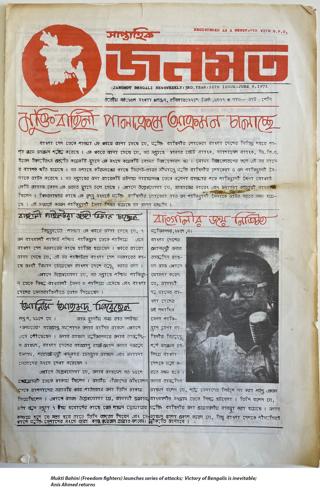
9 of 18
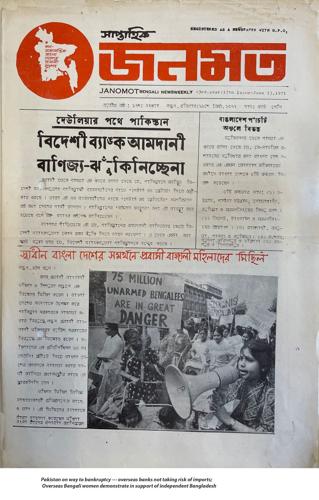
10 of 18
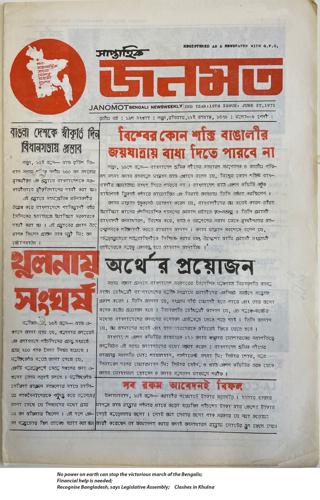
11 of 18
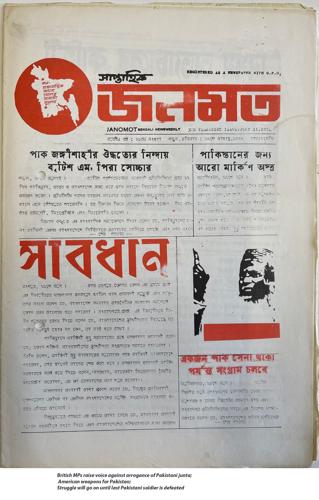
12 of 18
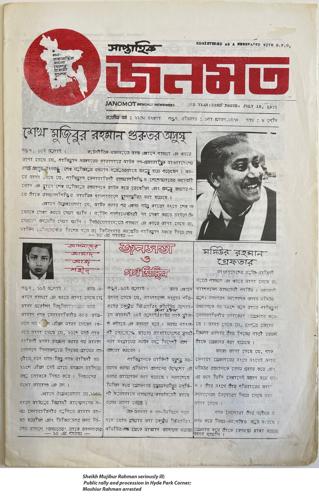
13 of 18
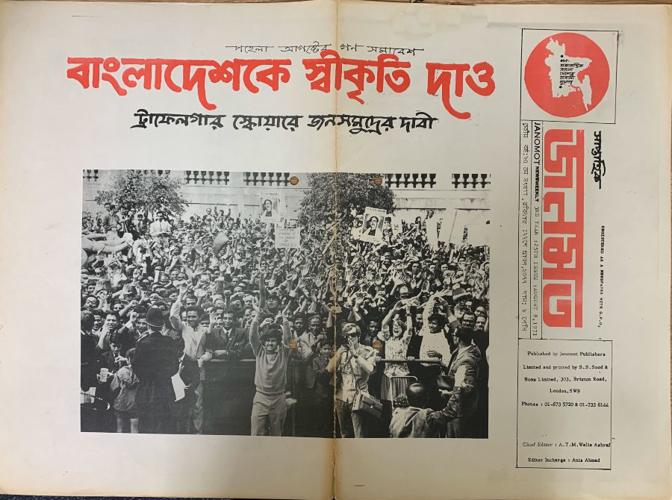
14 of 18
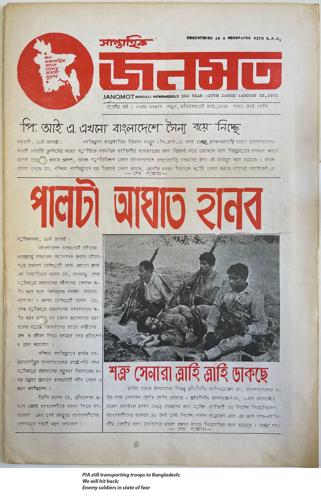
15 of 18
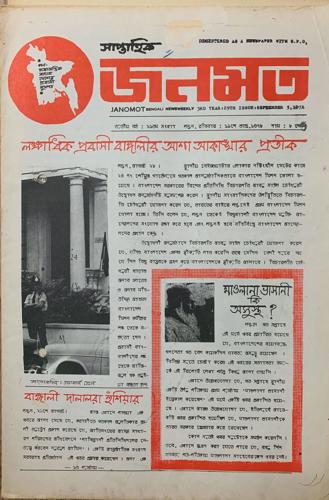
16 of 18
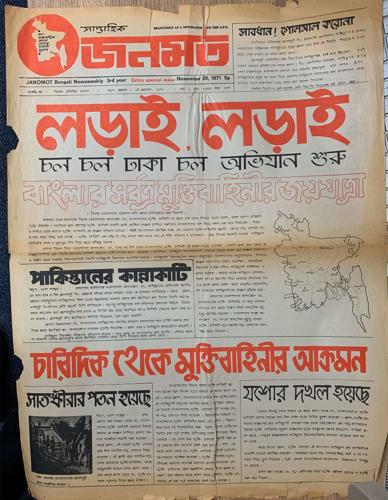
17 of 18
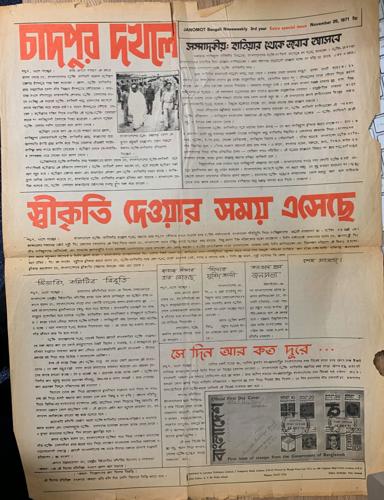
18 of 18
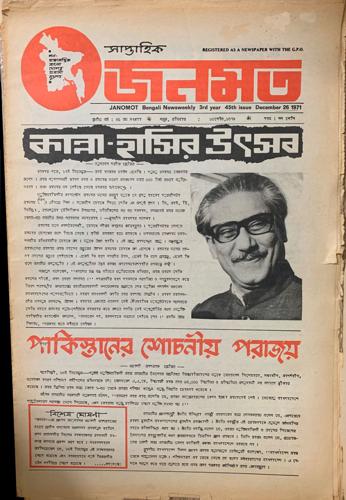
❮
❯
In the beginning
Janomot speaks of the Bengali diaspora. It is a voice for Bangladeshis who have made the United Kingdom their home. Janomot entered the journalistic domain 52 years ago. The times were in huge ferment back in Bangladesh, then East Pakistan.
In Britain, there was a growing need in the British-Bangladeshi community for a newspaper. It was a way to share events happening in the home country.
It was also to stay connected, to better coordinate activities and to create a sense of community. In simple terms, Janomot’s arrival on the scene in February 1969 was in response to the call of the times.
On the one hand, it was important to let people know that the Bengali community was part of the United Kingdom. On the other hand, Janomot was a mechanism that sought to inform people, here and abroad, of the political change that was coming to the Bengali nation in East Pakistan.
ATM Walie Ashraf, Anis Ahmed, Tasadduq Ahmed and many others were inspirational in their outlook when they founded Janomot.
They embarked on a journey that cemented its editorial ethos. In more than half century, Janomot continues to strengthen its collective values which are focused around objectivity; the principal which defines the newspaper.
Janomot was launched on 21 February 1969. This was the 17th anniversary of a decisive moment in Bengali history when shootings took place on the streets of Dhaka in 1952. It is now marked as International Mother Language Day.
The birth of the newspaper coincided with a Mass Upsurge in February 1969. This seminal event led to the withdrawal of the Agartala Conspiracy Case and the rise of Sheikh Mujibur Rahman as Bangabandhu. It was seen as a triumph for the people of East Pakistan.
The journey which Janomot embarked upon in 1969 was not an easy one. Many were skeptical about its future. Problems included needs for office space, qualified staff and advertising. But the men behind the enterprise were determined, undaunted and would not cave in under pressure.
The early years and the War of Liberation
Throughout its first two years, Janomot was a carrier of tidings from back home, both good and not so good.
It was a decisive phase in Bangladesh’s history when, under a nationalist leadership symbolized by Sheikh Mujibur Rahman, Bangladesh was on a search for its soul.
Away from home and emboldened by the spirit of nationalism, Janomot identified itself with that search and became established.
This was soon punctuated by news of revolutionary happenings with the diaspora worried by reports of a pogrom initiated by the Pakistan army on 25 March 1971.
Bangladesh declared independence in the early hours of the following day. It became crucial for Janomot to stay abreast of happenings in occupied Bangladesh and report back to its readers.
The paper collected reports, difficult in the context of media censorship imposed by the military junta in Bangladesh. It gathered information inside Bangladesh and from the war zone and made these accounts available to readers in Britain and elsewhere.
Janomot also remained attuned to the repercussions of the War of Liberation. It kept the wider Bengali community connected with those organizing resistance to the genocide throughout the UK.
The archives of Janomot speak for themselves. Meticulously preserved, reports and editorials from the past 50 years are an excellent resource for research.
It not only captures community affairs in Britain, but documents the varied political, economic and social happenings in Bangladesh.
One only needs to delve into the reports which the staff of Janomot penned and preserved, to learn the role the newspaper played in 1971 and beyond. In that year of armed struggle for Bangladesh’s freedom, Janomot did not miss out on reports from home and within the United Kingdom.
Janomot's coverage of the war is a testament to a decisive event shaped in an era defined by the Cold War.
Reportage of guerrilla warfare became all-encompassing in 1971. The Mukti Bahini freedom fighters waged a determined struggle against the occupation of the Pakistan army.
The archives provide a journey back to an annus horribilis that was to turn into an annus mirabilis.
The battlefield strategy throughout the nine months of the war shone through in Janomot. It outlined the wartime administration in the form of the Mujibnagar government.
The view from the UK
Patriotism underpinned the approach of the Bengali community in Britain to the War of Liberation.
An entire community including students, researchers, diplomats, social workers, restaurant owners, their staff and more came together.
They rose to the occasion in protest against a war imposed on an unarmed people. It was important to let their embattled compatriots in Bangladesh know that they were not alone in their struggle.
Janomot kept in touch with the overseas resistance, personified by the likes of Justice Abu Sayeed Chowdhury.
It reported on arrivals from Bangladesh and from the war zone. It kept tabs on the doings of the Pakistani diplomatic mission in London.
As the killings by the Pakistani army went on in Bangladesh, it covered the former president Ayub Khan’s meeting with Foreign Secretary Alec Douglas-Home, to argue the case for the Yahya Khan regime.
The newspaper has reflected the many problems the community has faced in the United Kingdom, and in particular, discrimination of various sorts and proportions.
Janomot has also come to the defence of the wider community, and especially people of other ethnic groups whose rights have come under assault.
Later years
In more recent years, Janomot has drawn attention to issues in the catering business. It has encouraged British-Bangladeshi entrepreneurs involved in the curry industry.
As the community has grown, its involvement in politics and social activity has increased. Janomot has been a pivotal force in advancing the causes of the community.
Janomot is a compendium, with a rich record of the history it has been part of and come to symbolize over the decades.
Its archives throw up names that played leading roles in the advancement of the Bengali cause in Britain, both, political and social.
It highlights the men and women who helped shape Janomot as a force for good. This is a newspaper speaking truth to power.
It leaves the next generation with a wealth of reports, well-reasoned editorial comments and analyses.
Janomot's name refers to the opinion of the people or public opinion. It has never strayed from its mission of informing and educating.
That is enough cause for wonder and for pride. It is symbolic of an ethos.
Researched and written by Syed Badrul Ahsan
Check out further information and archives from Janomot,